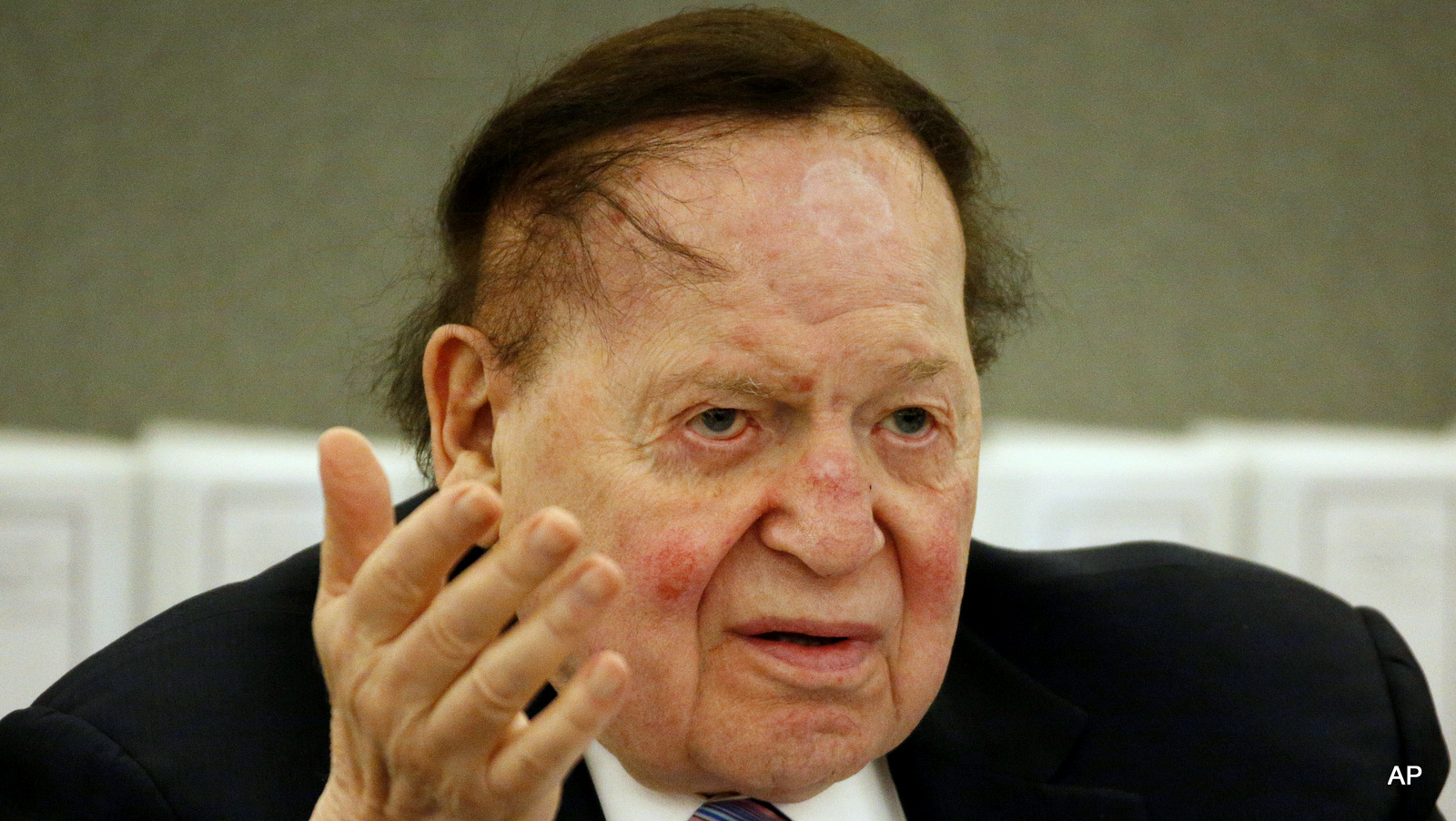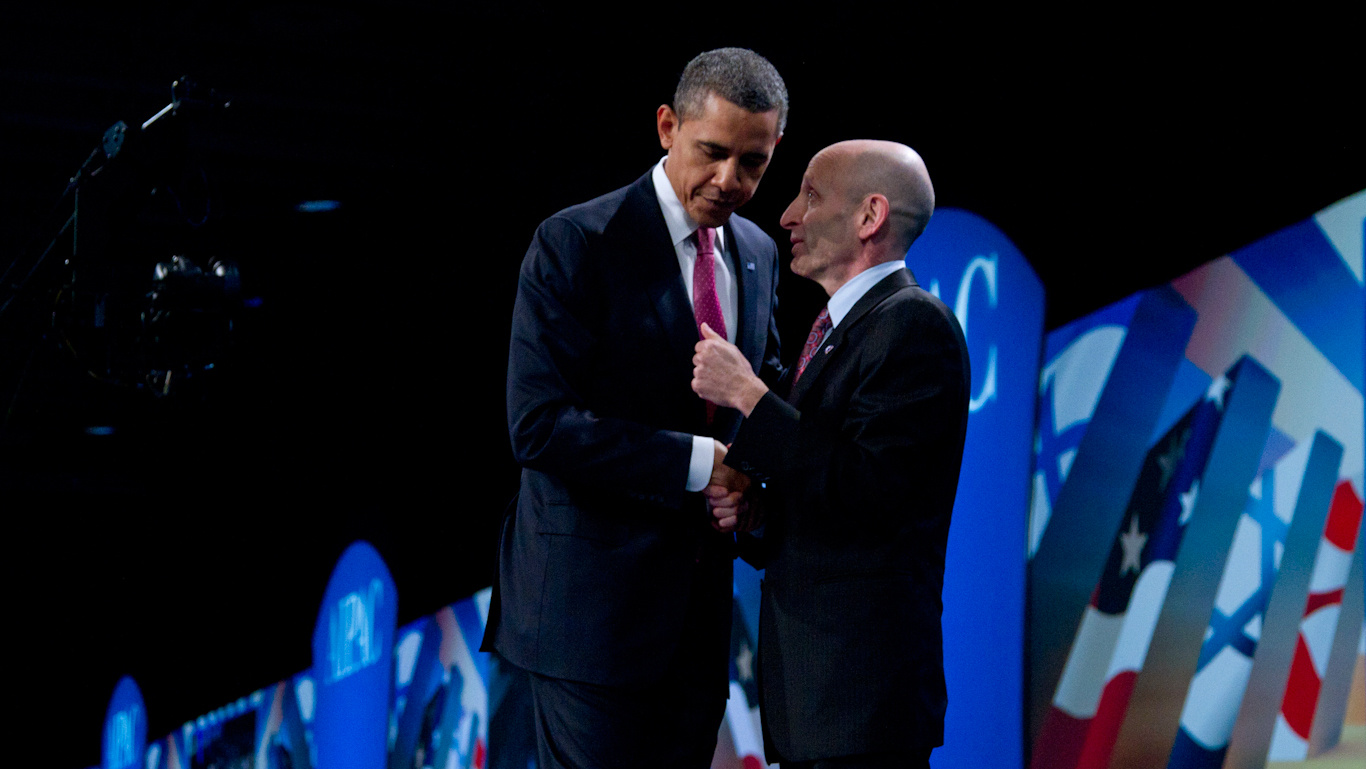The next 60 days offer a fateful window through which Congress will review the Iran nuclear deal announced last week to great fanfare by the P5+1 powers and their Iranian counterparts.
At the end of this period, both the House and Senate will vote on the agreement. Though the GOP has a majority in the latter body, it’s by no means a given that the vote will go against the deal. The Los Angeles Times reports there may be a few Republican senators who can be swayed if public opinion is running in favor.
To that end, the various groups within the Israel lobby have announced a massive PR campaign seeking to move both public opinion and the votes of individual senators against the deal.
Last week, The New York Times reported that the American Israel Public Affairs Committee (AIPAC), a pro-Israel lobby, has created a stand-alone group, Citizens for a Nuclear Free Iran, for this purpose. It plans to spend $20-40 million on the effort.
The group’s website doesn’t list staff and a board of directors. Instead it lists an “advisory board” consisting of the usual hawkish Democratic former senators, including Mark Begich, Joe Lieberman, Mary Landrieu, Evan Bayh, and former Rep. Shelley Berkley. Clearly, this isn’t an independent organization, but rather one established and controlled by AIPAC. Unlike some of groups below which are casting their nets wide, AIPAC seems to be targeting Democratic senators on the fence.
So far this year, according to U.S. Senate public records, AIPAC has spent nearly $2 million on direct lobbying, more than it’s ever spent in any previous six-month period since 1999. This is a further indication of the group’s dead-seriousness in pursuing the defeat of the Iran measure.
Will AIPAC use the ‘Doomsday Weapon’?
The Israeli media site, Walla, even invokes AIPAC’s use of a dreaded “Doomsday Weapon,” a massive payback campaign against those who defy the group and vote for the agreement. This would take the matter to a whole new level: It’s one thing to advocate against a Congressional bill; it’s quite another to spend the tens of millions it would take to fund primary challengers and general election opponents of any Democratic senators defying AIPAC in this vote.
Since the article clearly describes internal organization deliberations on the subject, this is not idle speculation. If AIPAC feels it’s on the cusp of winning, it could wheel out the heavy guns of intimidation and blackmail it utilizes in such circumstances.
Of course, if it does make such a major financial and political investment, there is the distinct possibility it could lose, as it did in the fight over the Menendez sanctions resolution. That bill would have torpedoed the Iran negotiations by adding further draconian sanctions against that nation. Democratic support for the measure collapsed amid the hostile fallout from Israeli Prime Minister Benjamin Netanyahu’s address to Congress in March. A similar loss in this case would involve considerable loss of prestige and the sense of invincibility which AIPAC exploits to great advantage in Washington backroom politics.
With the recent announcement of restoration of diplomatic ties between the U.S. and Cuba, it’s worth contemplating the toll the blockade against the island nation took on both its inhabitants and relations between the two countries. For fifty years, the U.S. relationship to Cuba was held hostage by a powerful domestic lobby which rewarded its political friends and punished its enemies.
President Barack Obama finally decided enough was enough. He determined that the power of the anti-Castro lobby in Florida had waned sufficiently to take U.S. policy in a new direction. The Israel lobby wields precisely the same sort of power on matters related to Israel. What would happen if a loss on the nuclear deal put America’s policy on Israel “in play” as happened regarding Cuba policy?
In Seattle, United Against Nuclear Iran aired a TV ad in recent days during prime time. And last month, the group’s chairman, Mark Wallace, who served as the United States’ ambassador to the United Nations under President George W. Bush, boasted of what he’d spend against the deal: “We have a multi-million-dollar budget and we are in it for the long haul. Money continues to pour in.” The group has also distributed a press release expanding on its plans.
United Against Nuclear Iran is known for exposing companies allegedly doing business with Iran. Their M.O. has been to approach company executives and threaten to “out” them as sanctions scofflaws if they didn’t stop, and, even better, if they didn’t donate to the group.
One shipping owner, Victor Restis, challenged United Against Nuclear Iran, and when the group accused him of violating sanctions, he sued them for libel. In an unprecedented intervention by the government in a private commercial lawsuit, the Justice Department in 2014 asked the judge to shut down the case on the grounds that exposure of the documents Restis was demanding would damage national security. Reporters covering the story wrote that much of the material Restis wanted was believed to have been furnished to United Against Nuclear Iran by Israel’s Mossad or even the CIA. Such a revelation would have exposed the level of collusion between the two intelligence agencies and their exploitation of purportedly independent, non-partisan NGOs to advance their political agenda.
Politico reported last month that the American Security Initiative had bought $1.4 million worth of TV ad time targeted to the June 30 deadline to complete the agreement. American Security Initiative is a hawkish national security 501(c)4 founded by former Republican Sens. Saxby Chambliss (who recently said Edward Snowden should be hung), Norm Coleman, and Democrat Evan Bayh.
Politico also noted another pro-Israel lobbying group, Secure America Now, founded by push-poll specialists Pat Caddell and John McLaughlin, was pouring $1 million into its own media blitz targeting undecided Democratic Sens. Richard Blumenthal, Michael Bennett and Chuck Schumer. Secure America Now was launched in the aftermath of the Islamophobic campaign against the building of a mosque “on holy ground” near the World Trade Center site.
Another group likely to be closely involved is The Israel Project, whose director, Josh Block, was formerly AIPAC’s public face. The Israel Project will undoubtedly add its own voice to the media melee.
Meanwhile, the tumult over the deal has entered the Republican presidential primary campaign. South Carolina Sen. Lindsey Graham, seeking to bolster his flagging prospects, has made opposition to the deal a cornerstone of his campaign. At a recent press conference in New York, at which he promoted his new website, No Nukes for Iran, he warned if the deal was ratified New York City would be one of the Ayatollahs’ first targets. Business Insider reports:
Where do you think they’d like to come most outside of Washington?’ Graham said. ‘Right where we’re sitting.’
‘New York City represents America,’ Graham added. ‘This is the place that they’d choose to hit us again if they could.’
Flanked by Sen. John McCain (R-Arizona) and former Sen. Joe Lieberman (D-Connecticut), Graham struck an almost apocalyptic tone when discussing the deal. He frequently drew parallels between Iranian Supreme Leader Ali Khamenei and Adolf Hitler, suggesting that the deal posed an enormous threat to Israel and to the US and that it would lead to a nuclear-arms race in the Middle East.”
Meanwhile, supporters of the bill in Congress have some new allies in Israel itself. Jonathan Alter reports in the Daily Beast that former Shin Bet chief Ami Ayalon fully supports the measure. The Israeli navy veteran also reeled off the names of other senior military and intelligence figures who support it.
Adelson: The $64-million question

The casino magnate Sheldon Adelson is the great unknown among all the donors in the Israel lobby sphere. He alone could spend many times the $40 million AIPAC plans to spend, should he choose to. Given his status as Benjamin Netanyahu’s prime financial backer and the $100 million he spent on Mitt Romney’s failed presidential bid, Adelson will likely weigh in on the subject as well. By a conservative estimate, the Israel lobby could spend upwards of $50 million on this campaign. Should Adelson go “all in” (to use gambling parlance appropriate for him) that figure could climb to $100 million.
There are a few organizations which plan to weigh-in on behalf of Secretary of State John Kerry’s agreement. Among them are J Street, an American Jewish group dedicated to supporting Obama administration foreign policy. It plans to spend between $2-3 million in support of the deal. The National Iranian American Council, led by Trita Parsi, has long supported the deal. It’s not known how much it will invest, but its budget and resources aren’t nearly a match for AIPAC.
At a recent National Iranian American Council conference, former Dem. House member Jim Slattery warned of the mind-boggling phenomenon this campaign represents:
I’ve been around this town for about 30 years now … and I’ve never seen foreign policy debate that is being so profoundly affected by the movement of hundreds of millions of dollars in the American political system.”
President Obama has shown himself adept at outmaneuvering his political adversaries concerning Iran. The failed Menendez bill is just one example. The political math concerning the current legislation also is in the president’s favor. Even if the Senate rejects the nuclear agreement, he will veto it. That means the GOP majority will need 13 Democratic votes. Undoubtedly, they will gain a few. But it’s exceedingly unlikely they will get all of them. If they don’t, the agreement will be ratified and the president wins.
Israel loses if nuclear deal wins
Such a victory has repercussions for AIPAC and the power of the Israel lobby. But it has even more far-reaching implications for Israel and its changing role in the Middle East. Until now, it has been the indisputable power in the region, especially among the frontline states of Egypt, Jordan, Syria, Lebanon and Palestine. What Israel wanted, it got. Having 200 nuclear warheads only reinforced Israeli dominance.
The nuclear agreement could augur an age in which Iran takes its place as a responsible participant in regional politics. Instead of supporting Islamist militants in Lebanon and Syria, it might coordinate efforts with the U.S. to contain the Sunni Islamist threat represented by al-Qaida and the self-proclaimed Islamic State of Iraq and Syria (ISIS). It certainly will allow Iran to become a commercial power, with foreign delegations arriving in Tehran daily to negotiate new business deals that would follow the lifting of sanctions.
Israel could see its stature recede considerably as Iran’s rises. That’s why Prime Minister Netanyahu has been touting a purported alliance between his nation and the Sunni Gulf states. In fact, The New York Times’s editorial endorsing the Iran deal says Netanyahu has taken this one step further: He’s said that on Iran, Israel has more in common with the Sunni states than with the U.S.
It’s possible this is precisely the sort of posturing for which Netanyahu is well-known. But given the United States’s role as Israel’s arms guarantor in every major war it has fought, it’s extraordinary for the prime minister to claim Arab states are his new go-to allies. During Israel’s next war against Hezbollah or Hamas, does he think King Salman of Saudi Arabia will give him the munitions he needs to maul Lebanon or Gaza?
Feature photo | President Barack Obama exchanges a few words with AIPAC president, Lee Rosenberg, after addressing the American Israel Public Affairs Committee’s 2012 (AIPAC) annual Policy Conference in Washington.


